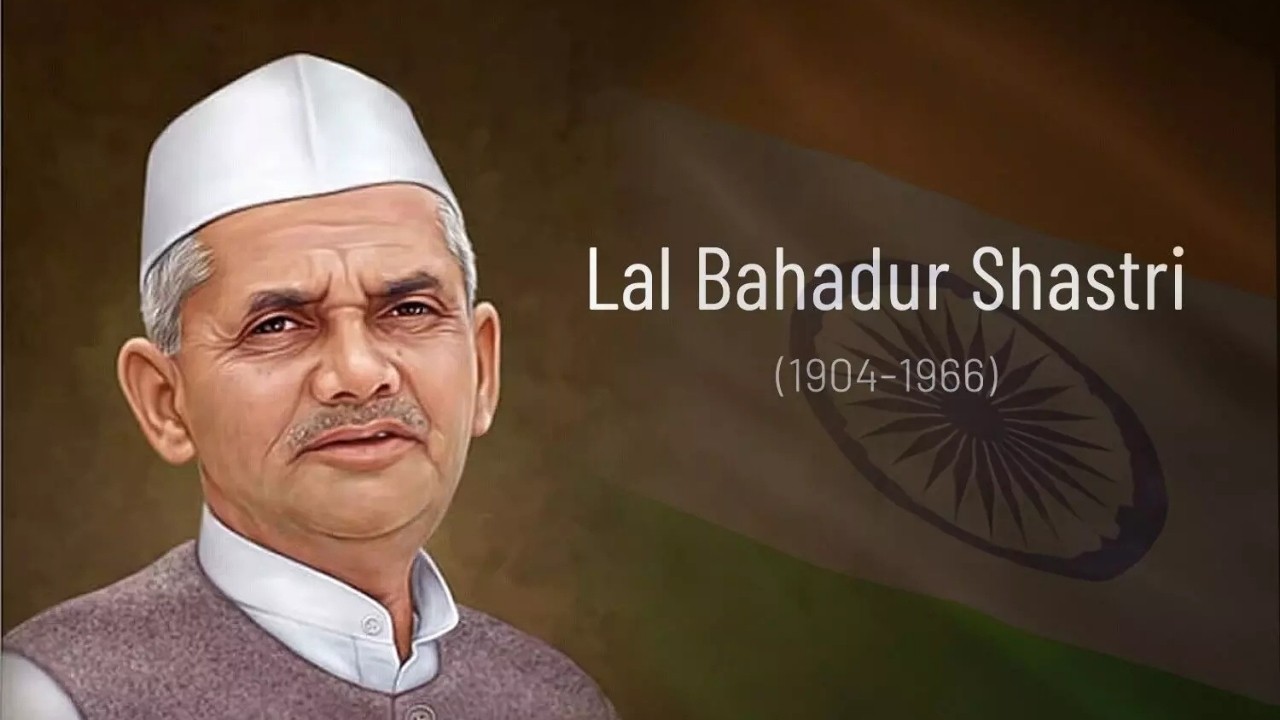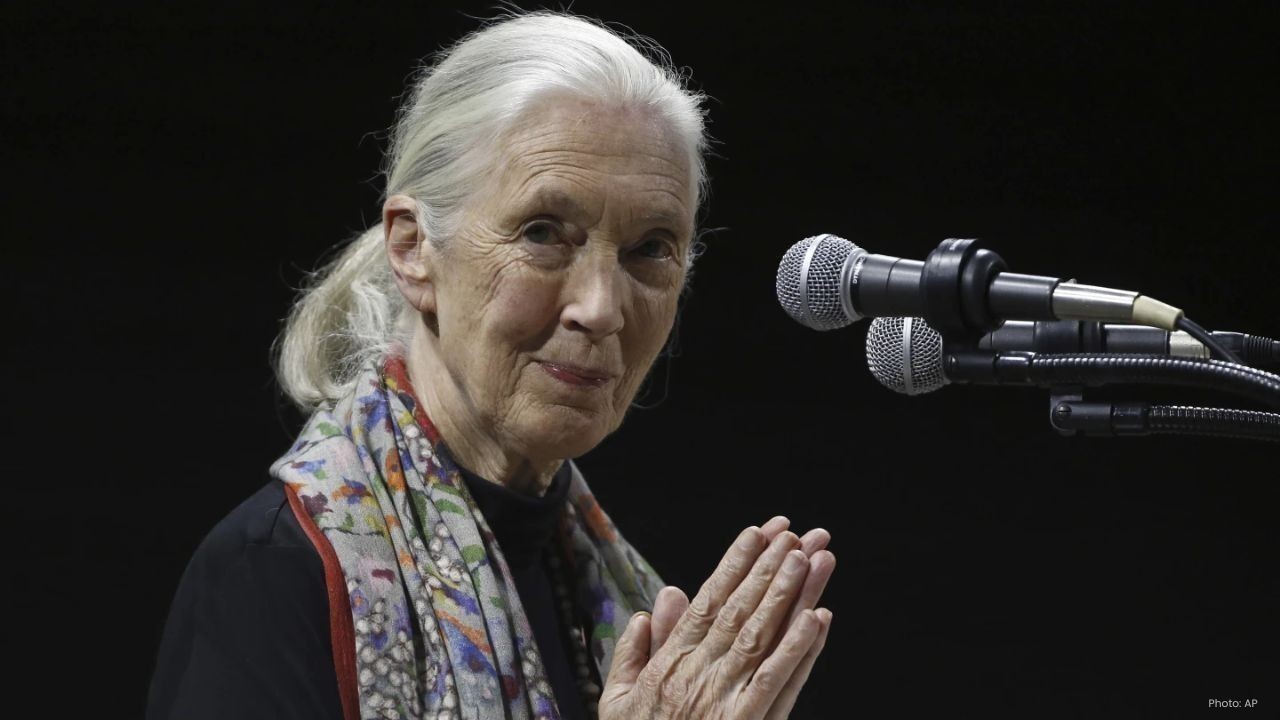
Post by : Anish
Lal Bahadur Shastri, born on October 2, 1904, in Mughalsarai, Uttar Pradesh, remains one of the most respected leaders in Indian history. Sharing his birthday with Mahatma Gandhi, Shastri embodied values of truth, simplicity, and dedication. Despite limited means and personal hardships, his unwavering commitment to the nation and his humble demeanor set him apart as a leader deeply connected to the people. He was not only India’s second Prime Minister but also a statesman who proved that leadership is not defined by wealth or power but by moral strength and service.
Shastri came from a modest family, losing his father at a very young age. Raised by his mother in conditions of hardship, he developed resilience early in life. His education was often interrupted by financial struggles, yet his thirst for knowledge never diminished. He walked miles to attend school and later pursued higher studies in philosophy and ethics at Kashi Vidyapeeth. It was here that he earned the title Shastri, symbolizing his scholarly achievements. His formative years shaped him into a leader who valued education, perseverance, and moral courage.
As a young man, Shastri was deeply influenced by Mahatma Gandhi’s call for non-cooperation against British rule. He joined the Indian National Congress and actively participated in various movements, including the Salt Satyagraha and Quit India Movement. He endured multiple imprisonments but never deviated from his belief in peaceful resistance. These years of activism not only solidified his political ideology but also made him a trusted figure in the national struggle for independence.
After independence in 1947, Shastri quickly rose through the ranks of Indian politics. He held several key positions including Railway Minister, Transport Minister, and later Home Minister. As Railway Minister, he took moral responsibility for a major train accident and resigned, setting a rare precedent in Indian politics where accountability often took a back seat. His honest and transparent leadership style won him admiration across party lines.
In 1964, following the sudden death of Jawaharlal Nehru, Lal Bahadur Shastri was chosen as Prime Minister. Initially underestimated due to his quiet nature, he soon proved to be a strong and decisive leader. His leadership came during a challenging period when India faced food shortages, economic troubles, and external threats. Despite his short tenure, Shastri demonstrated the ability to inspire trust and confidence in the nation.
Perhaps the most enduring contribution of Shastri was his slogan “Jai Jawan Jai Kisan” (Hail the Soldier, Hail the Farmer). It highlighted the importance of soldiers in safeguarding the nation and farmers in feeding the people. This simple yet powerful phrase resonated across India, boosting morale during difficult times. It reflected his vision of self-reliance and the need to respect the backbone of India—its farmers and soldiers.
Shastri’s leadership was tested during the 1965 war with Pakistan. Despite limited resources and global pressure, he stood firm, boosting the morale of the armed forces and uniting the country in patriotism. His speeches during the war reflected his resolve and clarity of thought. Under his guidance, India fought valiantly, demonstrating that even with challenges, determination and unity could lead to victory.
Apart from defense, Shastri also took steps to address India’s food crisis. He encouraged the Green Revolution by supporting initiatives in agriculture, including improved irrigation systems, the use of fertilizers, and technological advancements. His leadership laid the foundation for India’s agricultural growth in the coming decades. He also promoted the concept of self-reliance in food production, urging citizens to sacrifice personal comforts for the collective good.
One of the most striking aspects of Shastri’s leadership was his personal integrity and simplicity. He lived a modest life, avoiding luxury even as Prime Minister. He once took a loan to purchase a car and continued repaying it after his death through his family. These actions showcased his honesty and refusal to misuse public office for personal gain. His lifestyle became an inspiration, reminding citizens that true leadership is about service, not privilege.
In January 1966, Shastri traveled to Tashkent (now in Uzbekistan) to negotiate peace with Pakistan after the war. The Tashkent Agreement, brokered by the Soviet Union, marked an attempt to normalize relations between the two nations. However, just hours after signing the agreement, Shastri passed away suddenly on January 11, 1966, under mysterious circumstances. His untimely death shocked the nation, and he was mourned as a leader who had given his all to the service of India.
Even decades after his death, Shastri’s legacy continues to inspire. His name is associated with honesty, patriotism, and dedication. Institutions, roads, and public projects across the country bear his name. Yet beyond monuments, his principles live on in the collective memory of the nation. Every year on his birth anniversary, citizens recall his contributions, reflecting on his values of humility, accountability, and resilience.
In today’s era, where political leadership often faces scrutiny for corruption and personal ambition, Lal Bahadur Shastri’s life serves as a reminder of what true leadership should look like. His emphasis on selflessness, moral courage, and unity remains highly relevant. As India continues to evolve on the global stage, Shastri’s vision of self-reliance, respect for farmers, and commitment to soldiers serves as a guiding principle for future generations.
Lal Bahadur Shastri was not just a Prime Minister; he was a symbol of honesty, humility, and national pride. His short tenure was filled with achievements that shaped India’s destiny. On his birth anniversary, remembering his life and contributions is not merely an act of tribute but also a way of reaffirming the values he stood for. He demonstrated that leadership rooted in simplicity and moral strength can overcome even the gravest challenges.
This article is intended for informational and educational purposes only. It reflects historical accounts and perspectives on Lal Bahadur Shastri’s life and legacy. Readers are encouraged to explore additional resources for a deeper understanding.

India vs West Indies Test Series 2025: A Clash of Heritage and New Beginnings
The 2025 India vs West Indies Test series promises fierce cricketing battles with new leadership, em

Lal Bahadur Shastri Birth Anniversary: Remembering India’s Humble Prime Minister
Lal Bahadur Shastri, India’s second Prime Minister, is remembered for his humility, integrity, and s

Korean Scientists Teach Robots to “Forget” for Faster Navigation
New Physical AI helps autonomous robots forget outdated info, boosting efficiency in factories and l

Abu Dhabi Q2 GDP Hits AED306B, Non-Oil Sectors Lead Growth
Abu Dhabi’s Q2 2025 GDP reaches AED306B, with non-oil sectors driving record growth in manufacturing

DEWA Joins Global vPAC Alliance, Leading MENA Power Sector
DEWA becomes first MENA utility in vPAC Alliance, advancing smart grids, digital networks, and globa

Jane Goodall Dies at 91: Legendary Voice for Wildlife Lost
Renowned primatologist Jane Goodall passes at 91, leaving a legacy of groundbreaking chimpanzee rese

UAE to Launch World-Class Passenger Rail with Etihad & Keolis
Etihad Rail partners with Keolis to introduce world-class passenger rail in UAE by 2026, offering se

Fusion of Tradition and Modernity Balancing Heritage and Modern Life
Explore how tradition and modernity blend to shape culture innovation and society creating a balance

Top Nutrient Rich Foods Every Woman Should Eat for Better Health & Energy
Discover top nutrient rich foods every woman should eat to boost energy immunity and overall healt

Fibre for Weight Loss How High Fibre Foods Help You Shed Pounds Naturally
Learn how fibre helps you lose weight naturally keeps you full boosts digestion and supports a healt

Small Weight Loss Tips to Protect Your Knees
Even small weight loss can reduce knee pain improve mobility and protect joints Learn simple tips to

Men s Grooming & Skin Care Guide Tips for Healthy Skin and Confidence
Discover the ultimate men s grooming and skin care guide with tips for healthy skin hair care and co

Body Contouring & Slimming in Dubai Safe Non Surgical Ways to Reshape Your Body
Discover safe effective body contouring & slimming treatments in Dubai to reduce fat tighten skin an

Anti Aging & Rejuvenation in Dubai Secrets to Younger Skin & Wellness
Discover anti aging & rejuvenation in Dubai From Botox to natural care explore safe treatments for y

Lip Tanning & Sun Damage Causes Signs Prevention & Treatments
Learn about lip tanning and sun damage Discover causes signs prevention and treatments to keep your